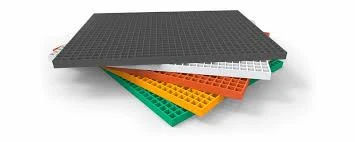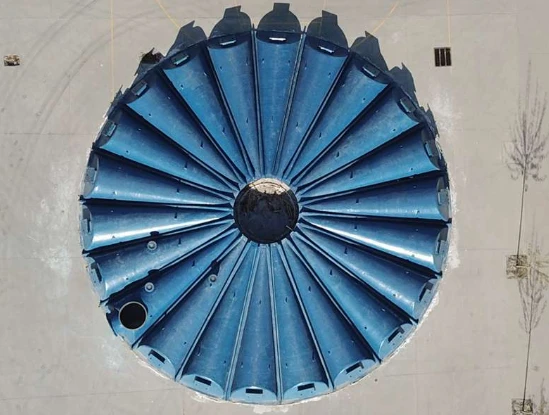
-
 Afrikaans
Afrikaans -
 Albanian
Albanian -
 Amharic
Amharic -
 Arabic
Arabic -
 Armenian
Armenian -
 Azerbaijani
Azerbaijani -
 Basque
Basque -
 Belarusian
Belarusian -
 Bengali
Bengali -
 Bosnian
Bosnian -
 Bulgarian
Bulgarian -
 Catalan
Catalan -
 Cebuano
Cebuano -
 China
China -
 China (Taiwan)
China (Taiwan) -
 Corsican
Corsican -
 Croatian
Croatian -
 Czech
Czech -
 Danish
Danish -
 Dutch
Dutch -
 English
English -
 Esperanto
Esperanto -
 Estonian
Estonian -
 Finnish
Finnish -
 French
French -
 Frisian
Frisian -
 Galician
Galician -
 Georgian
Georgian -
 German
German -
 Greek
Greek -
 Gujarati
Gujarati -
 Haitian Creole
Haitian Creole -
 hausa
hausa -
 hawaiian
hawaiian -
 Hebrew
Hebrew -
 Hindi
Hindi -
 Miao
Miao -
 Hungarian
Hungarian -
 Icelandic
Icelandic -
 igbo
igbo -
 Indonesian
Indonesian -
 irish
irish -
 Italian
Italian -
 Japanese
Japanese -
 Javanese
Javanese -
 Kannada
Kannada -
 kazakh
kazakh -
 Khmer
Khmer -
 Rwandese
Rwandese -
 Korean
Korean -
 Kurdish
Kurdish -
 Kyrgyz
Kyrgyz -
 Lao
Lao -
 Latin
Latin -
 Latvian
Latvian -
 Lithuanian
Lithuanian -
 Luxembourgish
Luxembourgish -
 Macedonian
Macedonian -
 Malgashi
Malgashi -
 Malay
Malay -
 Malayalam
Malayalam -
 Maltese
Maltese -
 Maori
Maori -
 Marathi
Marathi -
 Mongolian
Mongolian -
 Myanmar
Myanmar -
 Nepali
Nepali -
 Norwegian
Norwegian -
 Norwegian
Norwegian -
 Occitan
Occitan -
 Pashto
Pashto -
 Persian
Persian -
 Polish
Polish -
 Portuguese
Portuguese -
 Punjabi
Punjabi -
 Romanian
Romanian -
 Russian
Russian -
 Samoan
Samoan -
 Scottish Gaelic
Scottish Gaelic -
 Serbian
Serbian -
 Sesotho
Sesotho -
 Shona
Shona -
 Sindhi
Sindhi -
 Sinhala
Sinhala -
 Slovak
Slovak -
 Slovenian
Slovenian -
 Somali
Somali -
 Spanish
Spanish -
 Sundanese
Sundanese -
 Swahili
Swahili -
 Swedish
Swedish -
 Tagalog
Tagalog -
 Tajik
Tajik -
 Tamil
Tamil -
 Tatar
Tatar -
 Telugu
Telugu -
 Thai
Thai -
 Turkish
Turkish -
 Turkmen
Turkmen -
 Ukrainian
Ukrainian -
 Urdu
Urdu -
 Uighur
Uighur -
 Uzbek
Uzbek -
 Vietnamese
Vietnamese -
 Welsh
Welsh -
 Bantu
Bantu -
 Yiddish
Yiddish -
 Yoruba
Yoruba -
 Zulu
Zulu
Feb . 08, 2025 06:24
Back to list
Rectangular Tanks
Fiberglass tanks have emerged as a transformative solution across various industries due to their unmatched durability, corrosion resistance, and adaptability. This modern innovation caters to an array of needs, from industrial to residential applications. With the ongoing demand for sustainable and reliable storage solutions, understanding the intricacies of fiberglass tanks becomes paramount.
Environmental concerns have pushed industries to seek out sustainable and eco-friendly solutions. Fiberglass tanks align with these goals due to their lower carbon footprint during production and their recyclability at the end of their lifecycle. Unlike their plastic or metallic counterparts, fiberglass tanks do not leach harmful chemicals, ensuring that the stored liquids maintain their quality, which is essential for environmental protection initiatives. Furthermore, the adaptability of fiberglass tanks extends to their design, as manufacturers offer a wide range of shapes and sizes. This flexibility means that whether the need is for an underground installation or an above-ground setup, fiberglass tanks can be tailor-made to fit seamlessly into the available space. The ability to withstand extreme temperatures further broadens the applicability of fiberglass tanks, ensuring reliable performance in varying climates. The security of storage contents is an added benefit of fiberglass tanks. Their robust construction provides excellent containment for hazardous materials, offering peace of mind in industries where safety is paramount. Regulatory bodies often mandate stringent storage standards, and fiberglass tanks comfortably meet these regulations, providing an authoritative assurance to users concerned about compliance. In conclusion, as industries continue to evolve and prioritize efficiency and sustainability, fiberglass tanks stand out as a superior choice. Their amalgamation of strength, resilience, and customization capabilities makes them an invaluable asset across diverse sectors. The adoption of fiberglass tanks is a testament to the need for reliable, cost-effective, and eco-friendly storage solutions, affirming their place as a leader in modern storage technology.


Environmental concerns have pushed industries to seek out sustainable and eco-friendly solutions. Fiberglass tanks align with these goals due to their lower carbon footprint during production and their recyclability at the end of their lifecycle. Unlike their plastic or metallic counterparts, fiberglass tanks do not leach harmful chemicals, ensuring that the stored liquids maintain their quality, which is essential for environmental protection initiatives. Furthermore, the adaptability of fiberglass tanks extends to their design, as manufacturers offer a wide range of shapes and sizes. This flexibility means that whether the need is for an underground installation or an above-ground setup, fiberglass tanks can be tailor-made to fit seamlessly into the available space. The ability to withstand extreme temperatures further broadens the applicability of fiberglass tanks, ensuring reliable performance in varying climates. The security of storage contents is an added benefit of fiberglass tanks. Their robust construction provides excellent containment for hazardous materials, offering peace of mind in industries where safety is paramount. Regulatory bodies often mandate stringent storage standards, and fiberglass tanks comfortably meet these regulations, providing an authoritative assurance to users concerned about compliance. In conclusion, as industries continue to evolve and prioritize efficiency and sustainability, fiberglass tanks stand out as a superior choice. Their amalgamation of strength, resilience, and customization capabilities makes them an invaluable asset across diverse sectors. The adoption of fiberglass tanks is a testament to the need for reliable, cost-effective, and eco-friendly storage solutions, affirming their place as a leader in modern storage technology.
Next:
Related Products
Latest news
-
Fiberglass 90 Degree Elbow for Custom Tanks & High Pressure Pipes Durable and Corrosion ResistantNewsJun.24,2025
-
Exploring the Benefits of Top Hammer Drifter Rods for Enhanced Drilling PerformanceNewsJun.10,2025
-
High-Precision Fiberglass Winding Machine for GRP/FRP Pipe Production – Reliable & Efficient SolutionsNewsJun.10,2025
-
FRP Pipes & Fittings for Shipbuilding - Corrosion-Resistant & LightweightNewsJun.09,2025
-
Premium FRP Flooring Solutions Durable & Slip-ResistantNewsJun.09,2025
-
Premium Fiberglass Rectangular Tanks Durable & Lightweight SolutionNewsJun.09,2025









